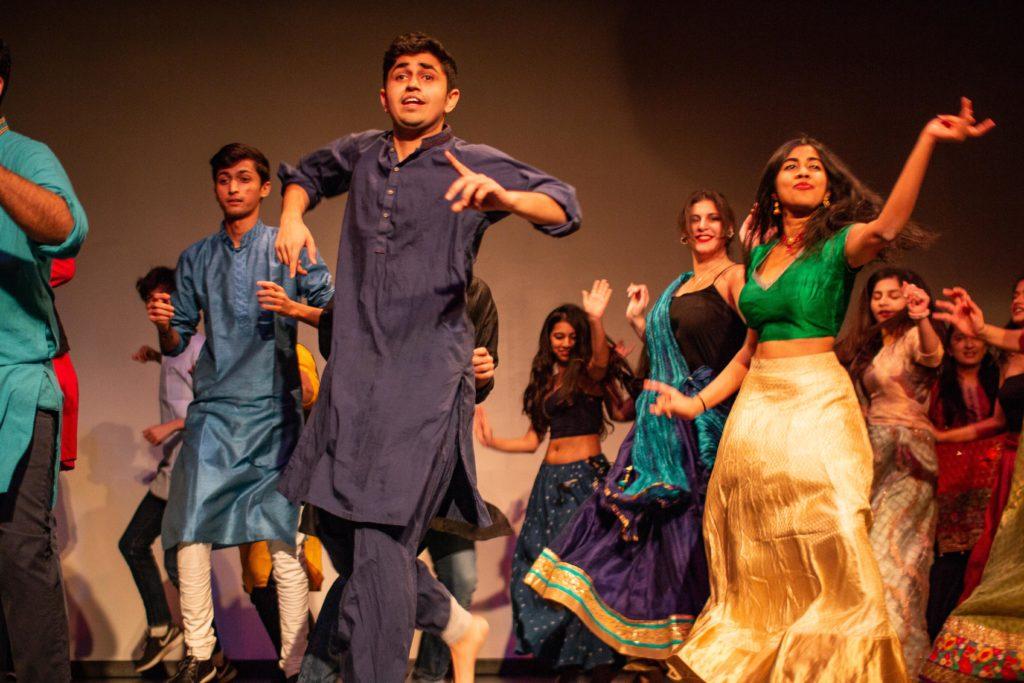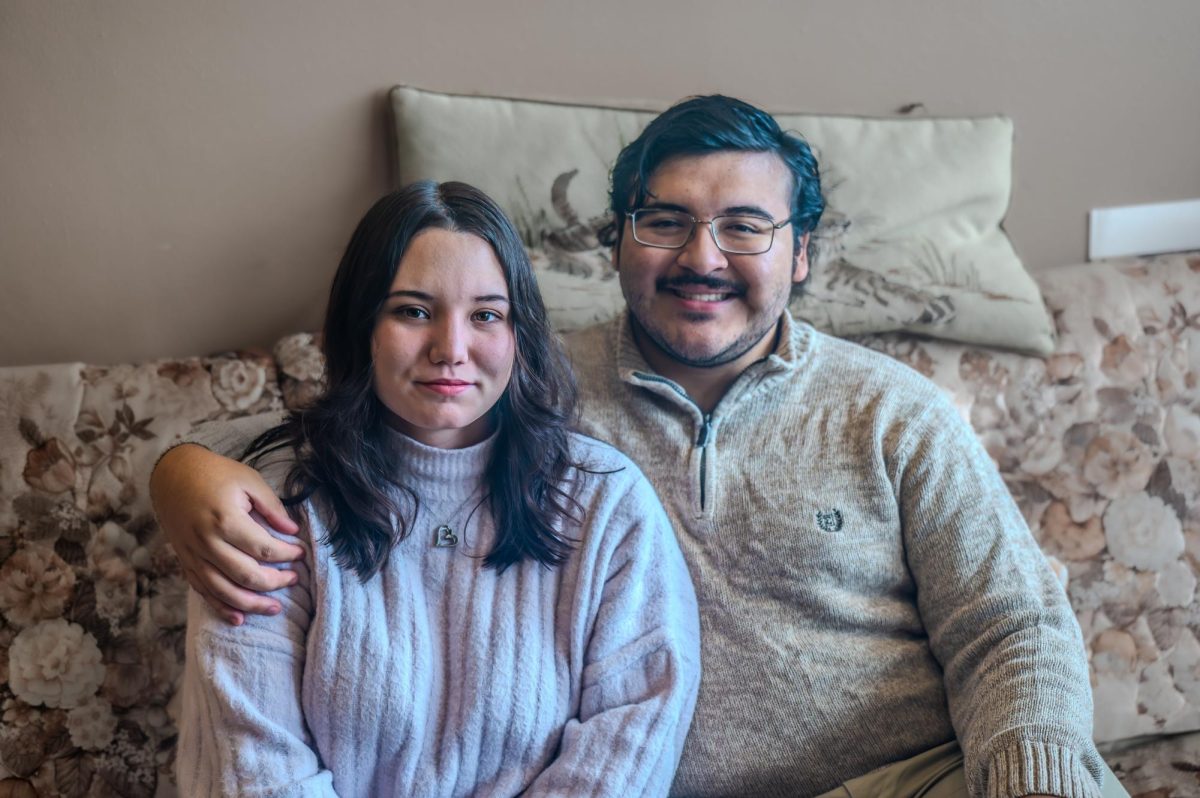Diwali celebrations at the College lit up many lives with chicken biryani, dancing, and connections formed around South Asian culture. Students have celebrated Diwali at Grinnell since the eighties when groups of South Asian Grinnellians started gathering every November for a small party. Since then, Diwali at the College has grown to include a jam-packed 200-person Harris event and, this year for the first time, a smaller, more intimate event in the Joe Rosenfield ’25 Center where students could perform Diwali rituals as a community.
Manan Pradhan ’20 explained the religious and cultural importance that Diwali has for many South Asian students.
“It’s kind of the most important festival of the year for Hindus. It’s celebrated mainly on the Indian subcontinent, so in India and Nepal … basically what it celebrates is the triumph of good over evil. We light a lot of lights and it’s a whole week-long kind of thing … You hang out with your family, there’s a lot of gifting that goes on and good parties, good food, good times. You can compare it to Christmas in that it’s the most important holiday and it’s a holiday season, in that sense,” said Pradhan.
Pradhan, Anaan Ramay ’20, Mahira Faran ’20, all cabinet members of the South Asian Student Organization, put together this year’s Diwali celebrations. On Friday, Nov. 10, they hosted the annual celebration in the Harris Center. Most attendees ate Indian food like daal and palak paneer from a restaurant in Des Moines. Additionally, around 30 students performed a dance and invited the audience to join them onstage. Afterward, several students and alumnus Sanjay Khanna ’85, all from different parts of South Asia, went on stage to talk about what Diwali means to them.
Faran says that having this large celebration is an important way for students not already familiar with South Asian culture to learn more about it.
“We want other students on campus to kind of become familiar with, like, what our food tastes like, what our music sounds like, what kind of energy South Asian students bring to campus,” she said.
In addition to the Harris event, Diwali celebrations continued into the night of Saturday, Nov. 10, where students drank chai, ate samosas gifted by Dining Hall Dishroom Supervisor Hamid Sidi, gave each other henna tattoos and made rangoli, designs created with colored powder which, a student explained, are traditionally intended as offerings to Lakshmi, the Hindu goddess of prosperity and wealth.
Faran said, “We always do a big dinner, but we never do a small, intimate event, which we did this year. The purpose of that was to let people actually participate in the process and the ritual rather than watching us do stuff.”
Ramay added, “When we invite everyone for the dinner and celebration, it’s a really broad community thing and it’s not really heavy on Diwali actually, it’s more like eating good South Asian food and having a celebration, basically.”
One traditional part of Diwali celebrations that was impossible for Grinnellians this year was the lighting of oil lamps, which Pradhan says symbolize the legendary lamps said to have been lit to guide a Hindu hero home after a lengthy exile. Saturday night was simply too windy for these lamps, but regardless, the planners of Grinnell College’s Diwali celebration considered it an overall success.
Diwali at Grinnell can provide a sense of a home away from home to what Faran, Ramay and Pradhan estimate are 30-40 Grinnell students who celebrate Diwali in their native countries.
Ramay said, “People are away from home, they miss being home for that one week, so it really brings everyone together.”
Faran and Ramay are both from Pakistan, where Diwali is not generally celebrated, but they also are both heavily involved in the event at College.
“It becomes an excuse for us to celebrate something with other people from the same area. Even though it doesn’t have a lot of religious value for us, it has a lot of community value,” Ramay said.
Some of the biggest challenges for the event coordinators came from the limitations associated with hosting in the Harris Center. Harris has limited space, so they were not able to accommodate many attendees.
Faran said, “There was so much going on that it felt like this might not happen at one point, but it ended up turning out really well.”




















































